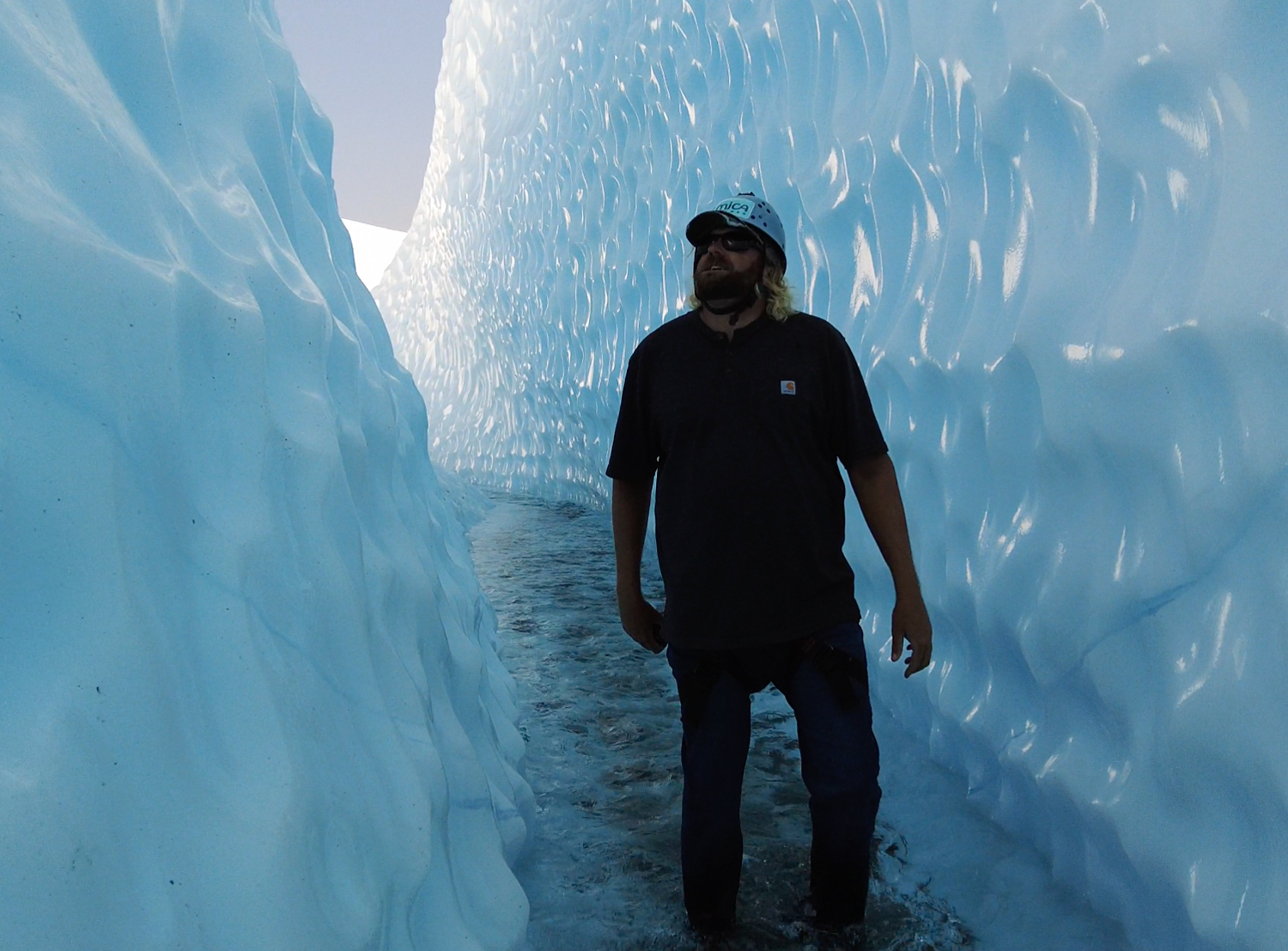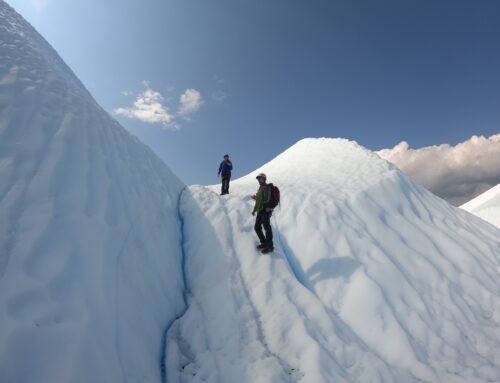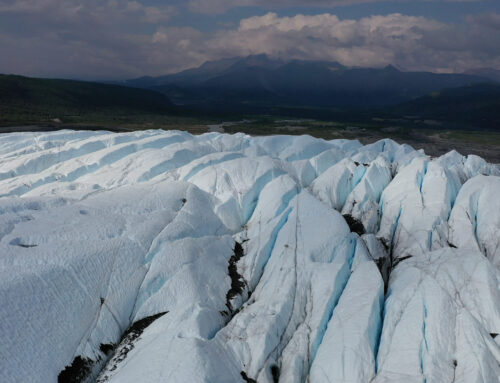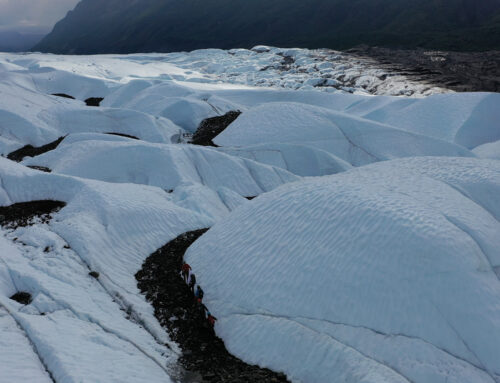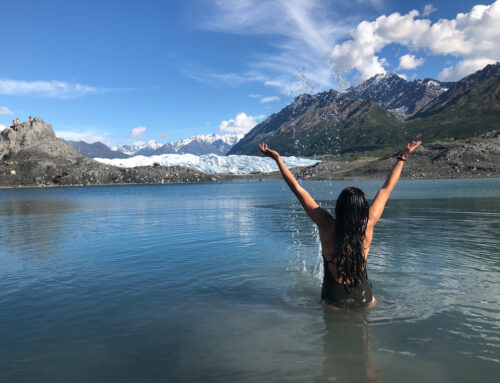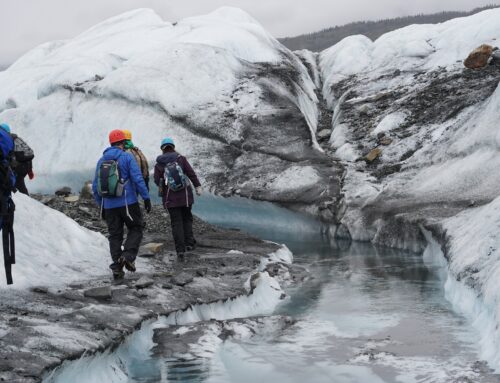The Color Blue
In the parts of the world where snow relentlessly falls over mountains and valleys, glaciers become the keepers of water. Starting as the accumulated heaviness of winters dark storm clouds, finding it’s way to the Earth by frozen droplets of water, snowflakes. The tension of water that the clouds can only hold for so long, until it becomes to heavy. A form of nature breathing.
Release
Sheets of snow cover mountains, that at some point will have to release the weight of accumulated snow to the valleys and basins below. Here is where snow will experience states of melting and freezing as the weather changes. And just like the clouds and the mountains, this weight will become to heavy and start pressing and grinding down the valley as a glacier.
When clouds become snow, and snow becomes ice, and ice forms into glaciers, we are left with an awe inspiring river of change that moves slowly. Well until melt season. And if you get the chance to travel deep into the belly of a glacier, like the Matanuska, you will get to see the spectrum of light, that highlights the heaviness of a Glacier’s blue hues.
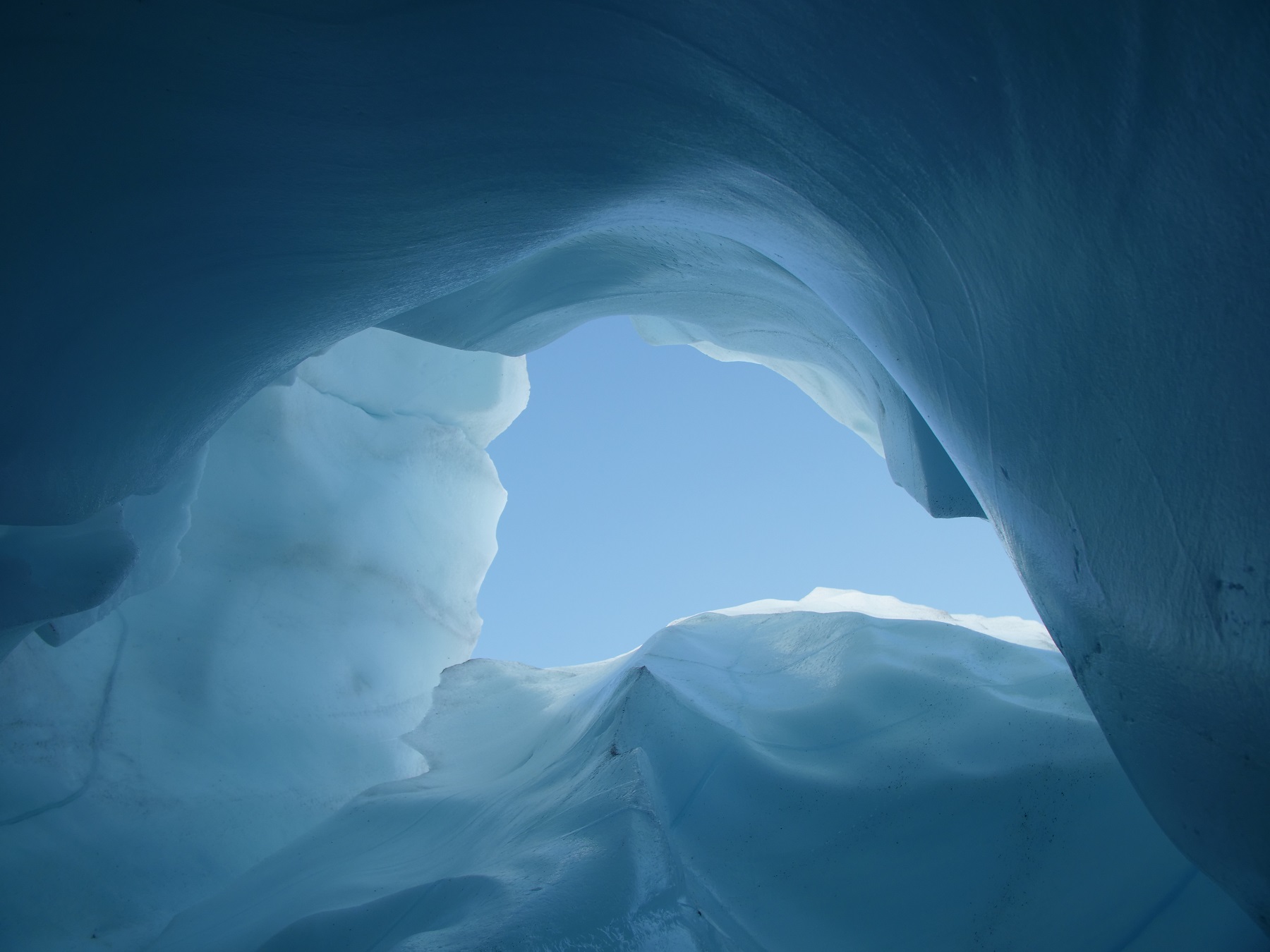
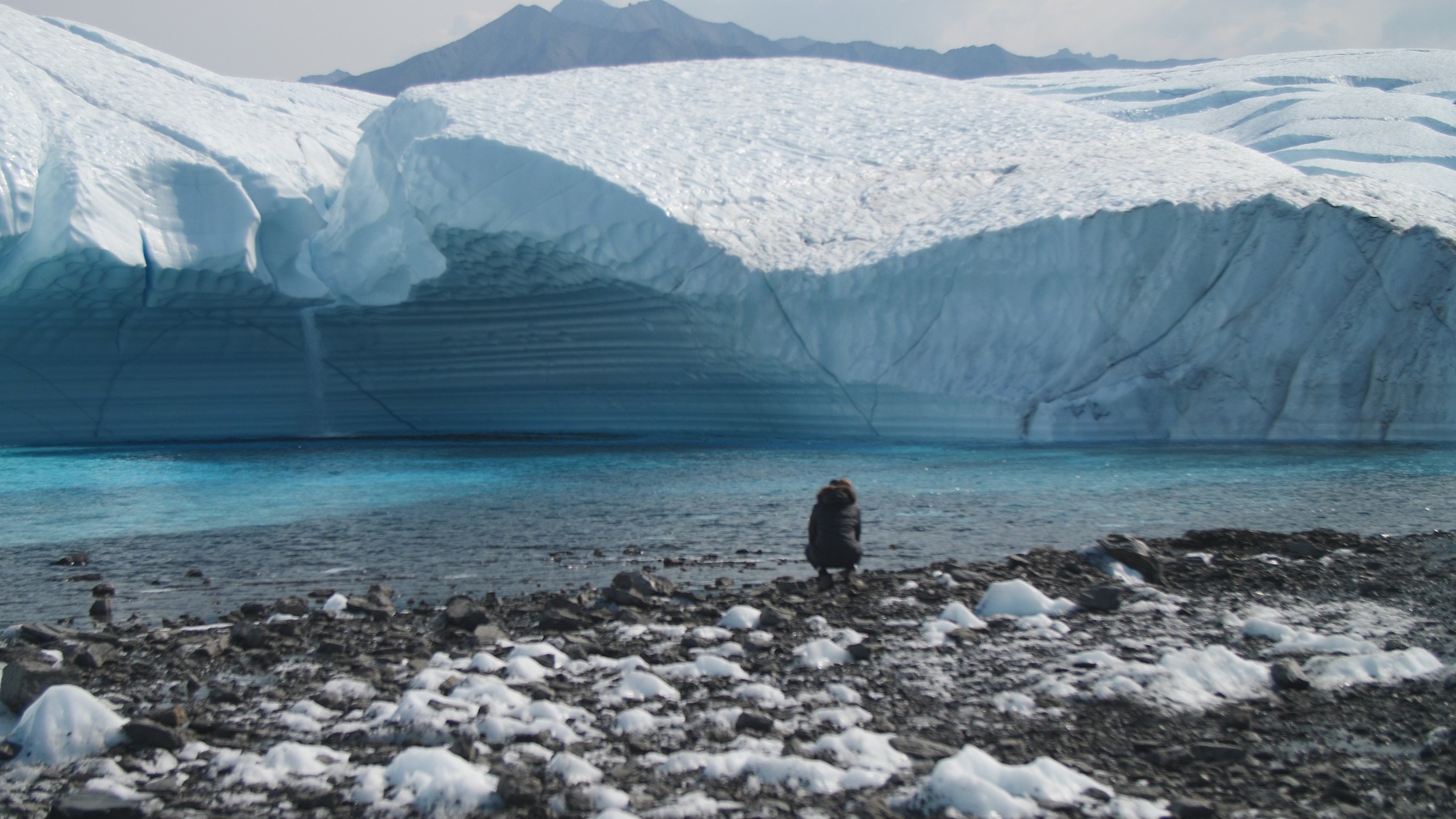
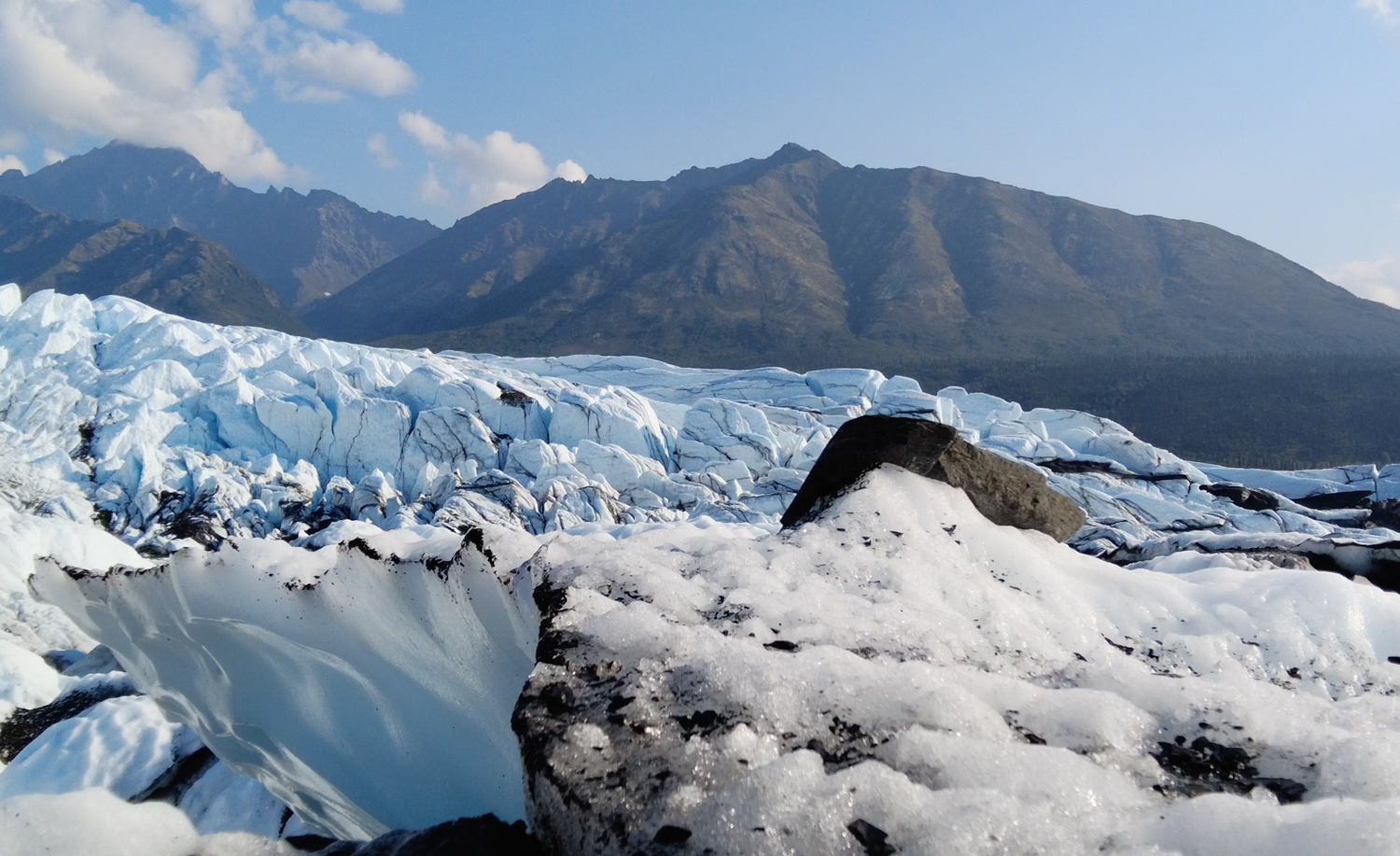
Seeing Blue
When a glacier’s ice becomes so dense from accumulation and pressure, our eyes perceive the color blue. And the thicker the ice, the deeper the blue. So being able to walk through a canyon of ice and soaked in blues, shows you just how dense the ice around you is. And if you are lucky, you might even get to see the most dense ice, which looks like a dark blue/violet to our eyes.
Experiencing Color
Whether you observe the blues from right on the ice or from the sky with a helicopter tour, you can see with your own eyes, the fruition of a heavy journey. You can observe the beauty and light that comes from the heaviness of water letting go, and what that can create. Seeing pictures is one thing, but being able to experience the blue hues is a whole experience that tells a story in itself. What picture is painted for you when you see a glacier’s blues.
